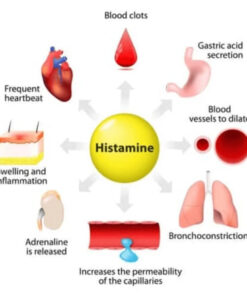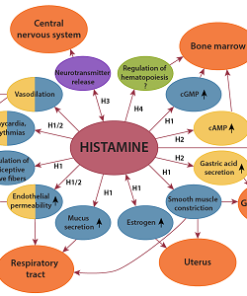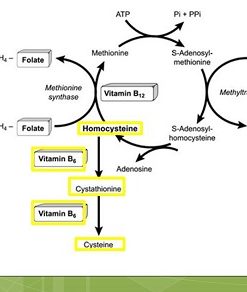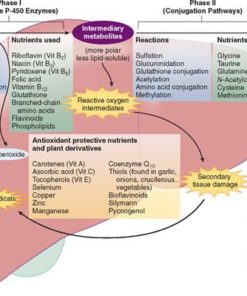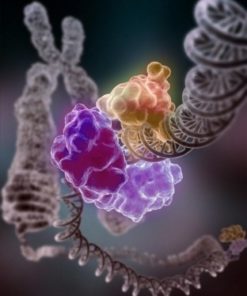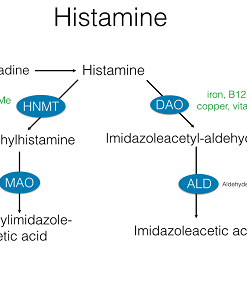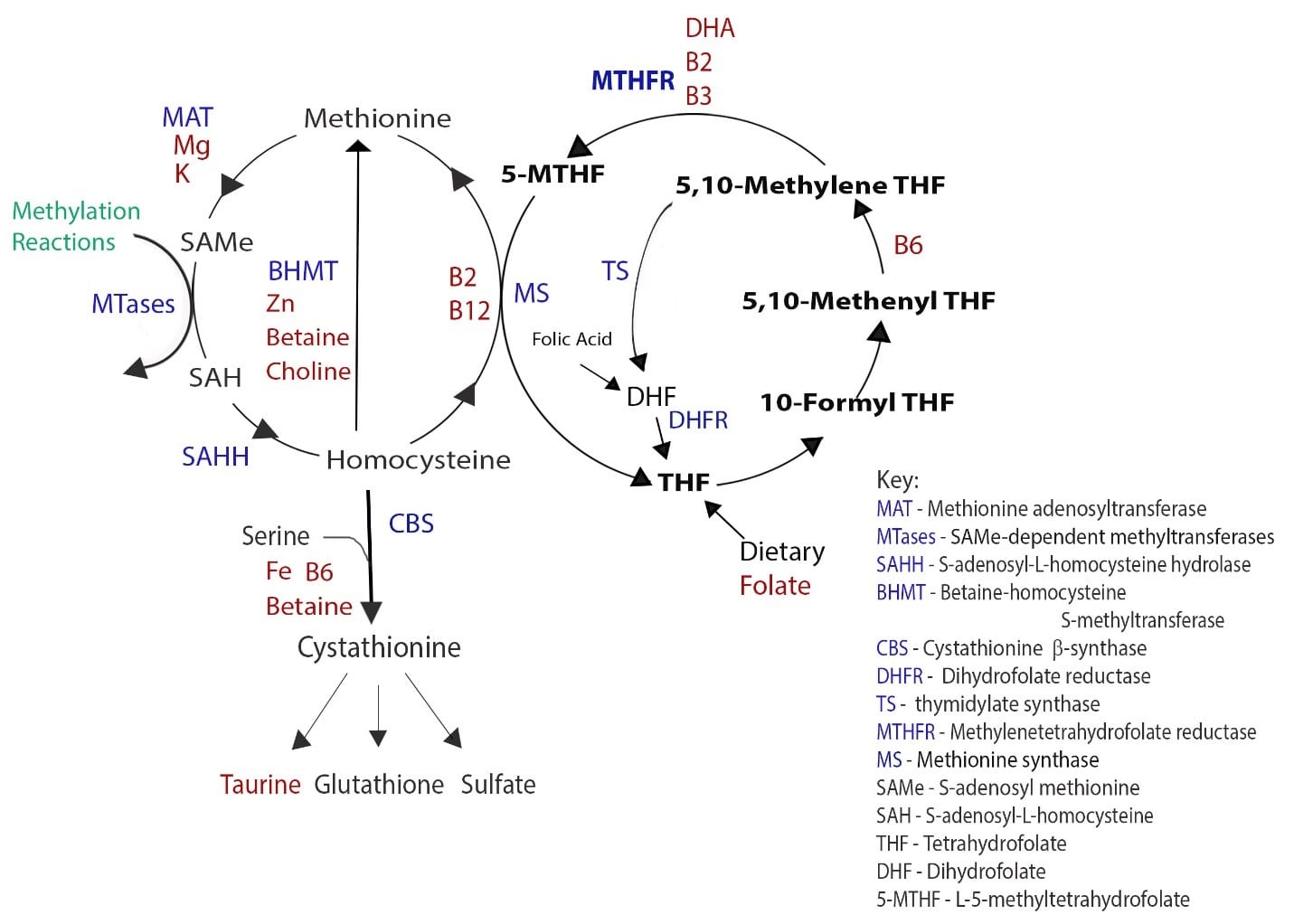
Methylation and Depression
What is Methylation?
Methylation is not one specific reaction that occurs in one location in the body, but rather, many reactions taking place continually in our cells, especially in the liver. A methyl group consists of one carbon atom connected to three hydrogen atoms, which are passed around a group of molecules in a cycle. So, any time this takes place, methylation occurs. Methylation is important in gene expression and repair, and the process can turn on a gene or activate an enzyme. When the methyl group is removed, the reaction stops, which turns off a gene or deactivates an enzyme.
The Role of Methylation in Mental Health per the Walsh Approach:
The Walsh Approach is a system developed by Dr. William J. Walsh for understanding the underlying biochemical imbalances in mental health conditions, including depression. According to the Walsh Approach, imbalances in the methylation cycle can affect the levels and activity of neurotransmitters like serotonin and dopamine, which can contribute to depression and other mental health disorders.
In undermethylation, the theory is that excessive methylation can lead to low activity of neurotransmitters such as serotonin and dopamine, which can cause symptoms of depression. In contrast, overmethylation may lead to excessive activity of these neurotransmitters, which can also contribute to depression.
The Walsh Approach seeks to identify these imbalances through various laboratory tests, specifically and assess the individual's specific needs for targeted nutrient therapies to help restore balance to the methylation cycle and optimize neurotransmitter levels.
Testing for Methylation Status:
Dr. Walsh believes that Whole Blood Histamine and the Plasma Methylation Panel by Doctors Data are more accurate measures of methylation status than the commonly tested COMT and MTHFR genes. This is because measuring the activity of these genes alone does not provide a complete picture of the methylation cycle.
COMT and MTHFR are genes that are involved in the methylation process, but they are just two of many genes and enzymes that contribute to methylation. In addition, the activity of these genes can be influenced by various factors such as diet, stress, and environmental toxins.
Whole blood histamine, on the other hand, is a marker of overall methylation status and reflects the activity of multiple genes and enzymes involved in methylation. Histamine is a byproduct of the methylation cycle, and its levels are thought to correlate with overall methylation status.
The Doctors Data Plasma Methylation Panel is a diagnostic test that measures various markers related to the methylation cycle in the body, which can provide useful insights into an individual's methylation status. The test looks at multiple markers involved in the methylation cycle, including SAMe (S-adenosylmethionine), SAH (S-adenosylhomocysteine), and various B vitamins.
SAMe and SAH are important markers because they reflect the balance between methylation and demethylation processes in the body. If there is an imbalance, it can lead to changes in gene expression and contribute to various health issues, including mental health problems.
In addition, the panel measures various B vitamins that are important for the methylation cycle, including folate, B6, and B12. These vitamins are necessary for the proper functioning of enzymes involved in the methylation process, and deficiencies can contribute to imbalances in the methylation cycle.
The role of Folates and Niacin in Methyl Metabolism:
Niacin and Niacinamide-
According to the William J. Walsh approach, vitamin B3 (also known as niacin) can be useful in treating overmethylation and depression. It is almost completely avoided with undermethylation and depression.
Niacin is a co-factor for the enzyme catechol-O-methyltransferase (COMT), which is involved in the breakdown of neurotransmitters such as dopamine and norepinephrine. In overmethylated individuals, there may be decreased activity of COMT, leading to elevated levels of dopamine and norepinephrine and potentially contributing to symptoms of anxiety and hyperactivity.
By supplementing with vitamin B3, the Walsh approach suggests that the activity of COMT can be increased, helping to break down excess dopamine and norepinephrine and reducing symptoms of anxiety and hyperactivity. In addition, vitamin B3 can also support the production of SAMe, the primary methyl donor in the body, which can further help to balance the methylation cycle and support overall mental health.
Folic Acid and Other Folates -
Supplementation with folic acid or other forms of folate may not be recommended for undermethylated individuals with depression because of the potential effects on serotonin and dopamine reuptake.
Folates are an essential nutrient that is involved in many important processes in the body, including methylation. SAMe, a compound derived from methionine, can modify histones to block the production of transporter proteins, resulting in increased serotonin and dopamine activity. Folates can also lead to histone modification, and serotonin activity in depression. Under such circumstances, folic acid can promote the expression of SERT, a protein that reuptakes serotonin, reducing its activity in the brain. For people with low-serotonin depression, this can be harmful, outweighing the benefits of normalizing methylation with folates.
Similarly, folate can also affect the activity of the enzyme monoamine oxidase (MAO), which is involved in the breakdown of neurotransmitters such as serotonin and dopamine. In some cases, high levels of folate can inhibit the activity of MAO, leading to lower levels of serotonin and potentially contributing to symptoms of depression.
Therefore, for individuals undermethylated with depression, the Walsh approach typically recommends targeted nutrient therapies that can support methylation activity without supplementing with niacin, folic acid or other forms of folate. Exceptions to this may exist with prenatal planning and in cases where elevated homocysteine poses a cardiovascular risk and in macrocytosis. These biochemical imbalances are occasionally present with genetic SNPs of MTHFR. In that case folates may be recommended, with caution.
In summary:
Methylation is a biochemical process that is important in gene expression and repair. It explains how imbalances in the methylation cycle can affect the levels and activity of neurotransmitters like serotonin and dopamine, which can contribute to depression and other mental health disorders. The Walsh approach seeks to identify these imbalances through laboratory tests and assesses an individual's specific needs for targeted nutrient therapies to help restore balance to the methylation cycle and optimize neurotransmitter levels.
Medical Consultation
Free Pre-Consultation | Find out if the Walsh Approach Ideal for You
Walsh Approach Single Tests
All Cognoscopy Labs
Medical Consultation
Walsh Approach Test Panels
Methylation Test Panel – Whole Blood Histamine & Homocysteine
Walsh Approach Test Panels



